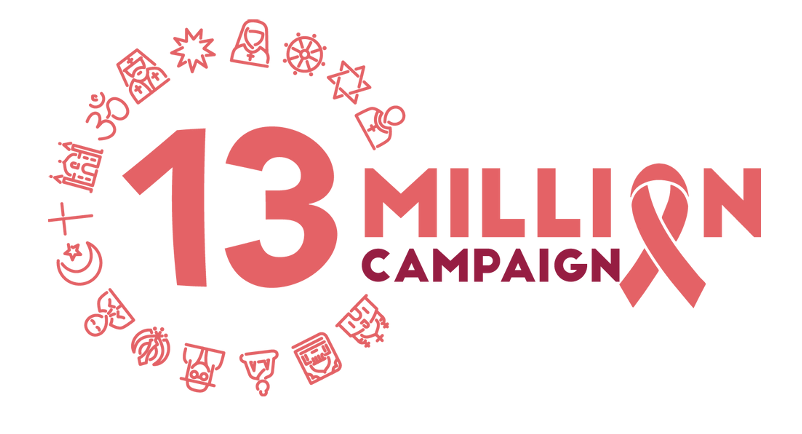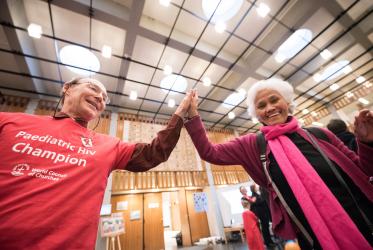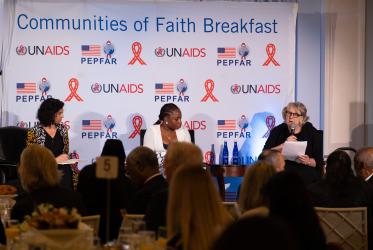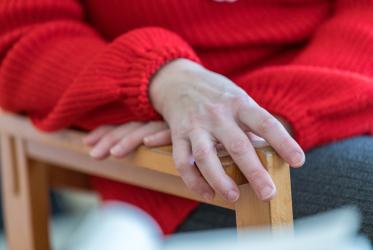A 13 Million Campaign is underway to engage faith leaders, individuals and communities in promoting access to health services for the 13 million children, women and men living with HIV who are not yet on antiretroviral treatment.
In reviewing the history of the nearly four decades-long struggle to overcome HIV, the importance of global solidarity has been essential—an aspect of response that is also at the forefront of response to COVID-19.
Jessie Milan, Jr, CEO of AIDS United, has highlighted the increased vulnerability of marginalised communities to both diseases. Racial injustices have compounded the suffering. "When our faith in systems and society are shaken, our faith community is needed even more,” he said.
The Anglican Archbishop of Cape Town, South Africa, Thabo Makgoba, has alerted policymakers that religious institutions are providing a substantial portion of the services needed by vulnerable people affected by HIV, and that faith-based leaders are cooperating actively with government agencies. He has proposed that 5% of global funding for HIV should be channelled through faith-based initiatives.
The United States President’s Emergency Plan for AIDS Relief has provided care to 15.7 million people who are receiving HIV services, in close collaboration with governments and with faith communities.
Faith groups have also been sharing good practices to ensure the provision of HIV services during COVID-19. Faith leaders have put into play what they learned from science, research, and information presented at international conferences.
“More than ever, it is important that faith communities and leaders are strong voices for people,” said UNAIDS deputy executive director Shannon Hader. “This means, in a time of COVID-19, recognizing that a call to action on COVID-19 and a call to action on HIV should be complementary and synergistic—they are not in opposition to each other.”
Resilience and renewal
A recent HIV Interfaith Conference underscored both the large number and the unflagging faith of those on the frontlines working to overcome HIV.
The World Council of Churches (WCC) was part of a consortium of organisations from several faith traditions and people living with HIV from around the world organising the gathering, with the support of the UNAIDS-PEPFAR Faith Initiative.
Challenged by COVID-19 and persisting economic and social inequalities, HIV response from a church perspective has nonetheless made big strides.
At the interfaith conference, more than 1,000 people gathered online to assess the way forward and explore the theme “Resilience & Renewal: faith in the HIV response.”
They began with sobering news: the most recent Global AIDS Update alerted the world the targets set for 2020 will be missed. Of the 38 million people living with HIV, 13 million children, women and men living with HIV are not yet on antiretroviral treatment.
Yet even as community resilience and innovation are defining the response to COVID-19, they are also bolstering response to HIV.
Faith-based communities have identified joint actions to address some of the challenges and emerging issues related to the achievements of the 2020 and 2030 HIV-related targets.
The World Council of Churches helped pave the way for many community groups participate in the conference.
BOLD Hearts Network, or Beautiful Outstanding Ladies with Disabilities based in Nigeria, was represented by nine women from different parts of Nigeria.
Ndifreke Andrew-Essien, the coordinator, expressed her appreciation for the examples of resilience and inspiration. “We truly benefitted from the conference,” she said. “It is our hope that in future, that our deaf constituents can participate with sign language interpretation.”
Nineteen-year-old Aarti Parab, who is living with HIV, was able to attend the conference late at night in a safe and enabling environment by the Human Touch Foundation, based in Goa, India, with the support of the WCC.
“I was particularly impressed by the good practices from Kenya, especially those of linking peers who have achieved viral suppression,” said Parab. “The use of celebration as a strategy, rather than punitive, is something which inspired me.”
WCC's Ecumenical HIV and AIDS Initiatives and Advocacy (EHAIA)






